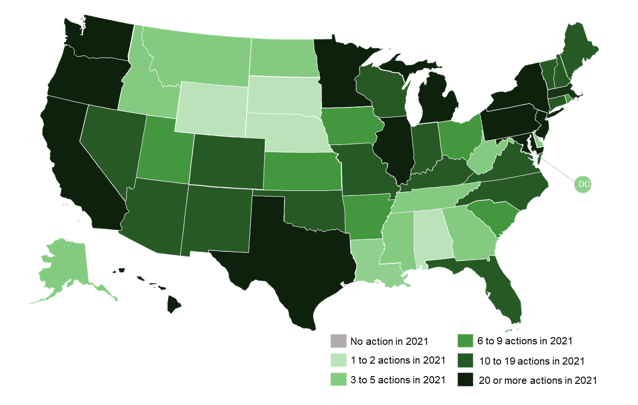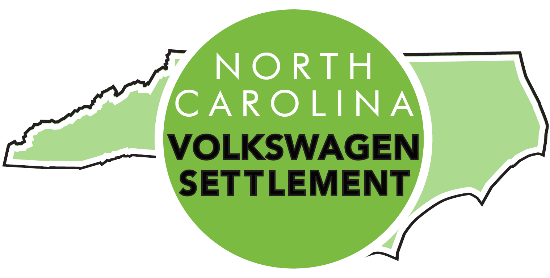 The North Carolina Department of Environmental Quality’s Division of Air Quality is now soliciting proposals for participation in Phase 2 of the NC Volkswagen Settlement Mitigation Program. Phase 2 is the final phase, and the NC Department of Environmental Quality (DEQ) plans to invest the remaining $67.9 million settlement funds during the time period of 2022 – 2024.
The North Carolina Department of Environmental Quality’s Division of Air Quality is now soliciting proposals for participation in Phase 2 of the NC Volkswagen Settlement Mitigation Program. Phase 2 is the final phase, and the NC Department of Environmental Quality (DEQ) plans to invest the remaining $67.9 million settlement funds during the time period of 2022 – 2024.
The funds represent North Carolina’s share of the $2.9 billion federal settlement with Volkswagen (VW) due to its misrepresentation of diesel emission standards in certain vehicles. The Division of Air Quality (DAQ) was designated as the lead agency to manage the project in 2017 by Governor Roy Cooper, and Wilmington Trust officially named North Carolina as a State Beneficiary in January 2018.
SHIFTING GEARS IN PHASE 2
The DAQ is committed to ensuring that the funding is distributed equitably and that rural and lower-income counties receive funding. It is also conducting additional outreach to historically under-resourced counties to encourage more applications for the available funding to facilitate equitable use of the Phase 2 funds.
The NC Clean Energy Technology Center (NCCETC) is partnering with the DAQ to host a series of public information sessions across the state to inform citizens about the VW Settlement Phase 2 funding opportunities, especially in Historically Under-Represented Counties. The Phase 2 Historically Under-Resourced County Outreach Program (HURCOP) aims to help counties that historically lack resources needed to effectively identify eligible vehicles for grant programs and submit quality applications.
The DAQ identified 37 Historically Under-Resourced Counties eligible for maximum funding amounts allowed by the VW Mitigation Consent Decree. Project applications in the 37 historically under-resourced counties may be eligible for the maximum funding amounts allowed as well as additional project scoring points.
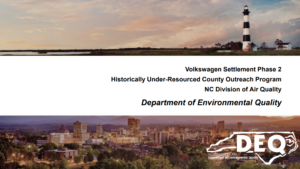 Alrik Lunsford, Heather Brutz, and John Bonitz, with NCCETC’S Clean Transportation program, have conducted several in-person meetings with DAQ staff and will be attending the information session in Kernersville, NC on March 24 from 1 – 3 p.m.. Learn more about the in-person information sessions on the DEQ website and, if you are interested in attending, please register online. You can also find the presentation for the HURCOP information meetings online on the DEQ website.
Alrik Lunsford, Heather Brutz, and John Bonitz, with NCCETC’S Clean Transportation program, have conducted several in-person meetings with DAQ staff and will be attending the information session in Kernersville, NC on March 24 from 1 – 3 p.m.. Learn more about the in-person information sessions on the DEQ website and, if you are interested in attending, please register online. You can also find the presentation for the HURCOP information meetings online on the DEQ website.
Past HURCOP In-Person Information Sessions hosted by NCCETC & DEQ:
- Henderson – February 23, 2022
- Rocky Mount – February 23, 2022
- Pembroke – February 24, 2022
- Goldsboro – February 24, 2022
- Elizabeth City – March 9, 2022
- Hickory – March 10, 2022
- Salisbury – March 16, 2022
- Wadesboro – March 16, 2022
“These funds are a big opportunity for advancing transportation electrification and other alternative fuels across the state,” Brutz said. Brutz noted that settlement funds can be used to incentivize fleet transition to help reach new targets set by Governor Cooper’s Executive Order No. 246. The Order calls for an increase in registered ZEVs to at least 1,250,000 by 2030 and for 50% of sales of new vehicles in North Carolina to be zero-emission by 2030.
While developing the plan, the DEQ’s Division of Air Quality (DAQ) sought input from North Carolinians across the state to determine how to allocate the funds over the duration of Phase 2. Phase 2 focuses will prioritize vehicle electrification projects. Public agencies, public and private non-profit organizations, as well as public/private partnerships are eligible for Phase 2 funding.
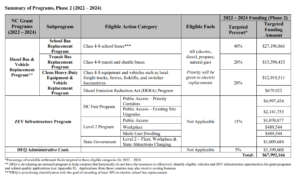
In Phase 2 of North Carolina’s VW Settlement Mitigation Plan, 80 percent of funds are allocated for the Diesel Bus & Vehicle Replacement Program and 15 percent of funds for the state’s Zero-Emission Vehicle (ZEV) Infrastructure Program. Through the Diesel Bus & Vehicle Replacement Program, 40 percent of Phase 2 funding will go towards replacing school buses, 20 percent of funding will be eligible for transit bus replacements and another 20 percent will be eligible for clean heavy-duty equipment and vehicle replacements.
The DEQ’s ZEV Infrastructure program was designed to expand the state’s ZEV charging infrastructure network along priority designated corridors. After receiving feedback from state agencies in Phase 1, the DEQ created a dedicated allocation for light-duty charging projects. The DEQ will also coordinate with the North Carolina Department of Transportation to determine optimal locations for installing EV charging stations for state fleet vehicles and attractions on state owned property.
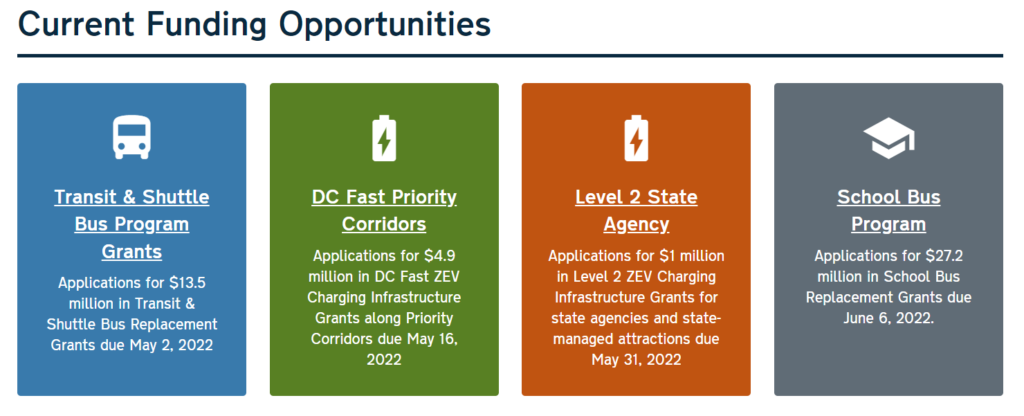
BREAKDOWN OF VW SETTLEMENT FUNDS IN PHASE 2
DEQ is managing the VW settlement funds for Phase 2 through five programs:
- School Bus Replacement Program – Application deadline June 6, 2022
- Transit and Shuttle Bus Replacement Program – Application deadline May 2, 2022
- Clean Heavy-Duty Equipment and Vehicle Replacement Program – Applications open soon
- Diesel Emission Reduction Act Program – Application period closed
- Zero Emission Vehicle Infrastructure Program
Approximately $54.4 million in settlement funds will be available in Phase 2 for the Diesel Bus and Vehicle Program, which has been divided into three subprograms: School Bus, Transit and Shuttle Bus, and Clean Heavy-Duty Equipment and Vehicle Programs. The DEQ has released a program Request for Proposals (RFP) for the School Bus and Transit and Shuttle Bus Replacement Program for Phase 2, and the last program RFP will be released in April 2022.
The School Bus Program, which began accepting applications on March 7, 2022, will allocate $27.2 million in VW funds in Phase 2 of the program to assist interested parties to mitigate NOx emissions by replacing older diesel school buses. The DAQ is hosting an informational webinar for interested applicants and stakeholders on March 25, 2022 from 10 AM to 12 PM. During this webinar, DAQ staff will discuss the School Bus Program RFP and application requirements. Register for the webinar online.
In Phase 2 of the Transit and Shuttle Bus Program program, $13.5 million in Volkswagen funds are allocated to assist interested parties to mitigate NOx emissions by replacing older diesel transit and shuttle buses. Additionally, approximately $6 million has been allocated by the North Carolina Department of Transportation (NCDOT) for electric buses in Congestion Mitigation and Air Quality (CMAQ) Improvement Program eligible counties.
The DAQ is currently accepting proposals for the DC Fast Program – Priority Corridors until May 16, 2022. This program is designed to continue the expansion of the state’s ZEV fast charging infrastructure network along priority designated corridors with the $4.9 million in VW allocated for Phase 2. The DC Fast Program – Existing Site Upgrades RFP to allocate the remaining $2.1 million Phase 2 ZEV Program funds will be released in April 2022 on the DEQ’s website.
The Level 2 Charging Program is divided into four separate programs designed to expand the state’s light duty ZEV charging infrastructure and network. $3 million in VW funds are allocated in phase 2 of the program. The DEQ released an RFP on February 28 for the Phase 2 Level 2 State Agency Program in which $1 million in funds have been allocated to install Level 2 electric vehicle charging infrastructure at state-maintained facilities and attractions. The DAQ is accepting applications for the Level 2 State Agency Program until May 31, 2022.
The DAQ also released the RFP for Public Access Level 2 Charging Infrastructure Program rebates under Phase 2 of the Volkswagen Mitigation plan. The RFP details how to apply for the $1,070,877 available to fund the installations of new publicly accessible light-duty ZEV Level 2 charging stations. Eligible, complete applications will be selected for funding on a first-come, first-served rebate process until funds are exhausted. Applications for the Level 2 Public Access Program will open in the GMS on May 2, 2022.
For updates about in-person and virtual information sessions as well as future RFPs and funding opportunities, you can visit the DEQ’s Phase 2 – VW Settlement website. If you would like to receive email updates about this topic, please send an email with the word Subscribe in the subject line to daq.NC_VWGrants@ncdenr.gov.
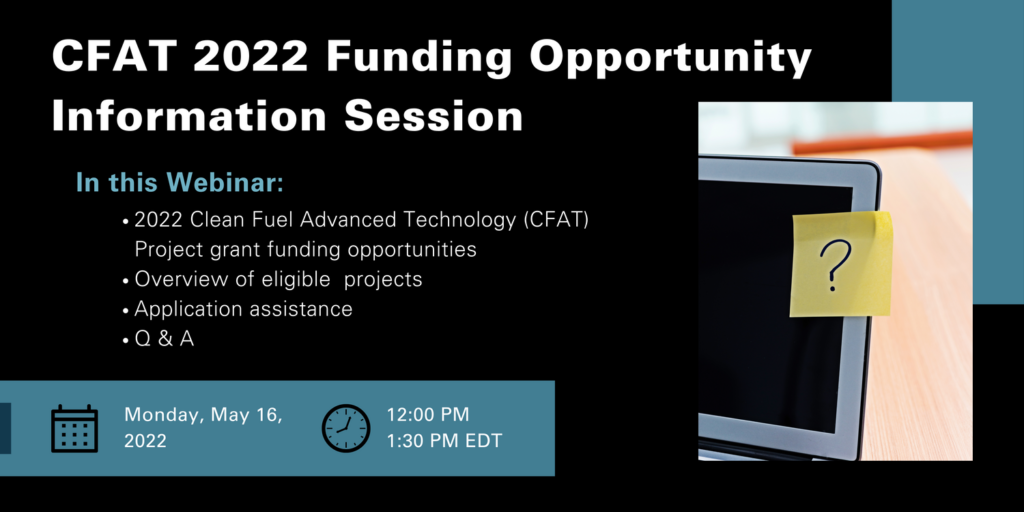 NCCETC will host a CFAT 2022 Informational Webinar from 12:00 p.m. to 1:30 p.m. Monday, May 16, 2022. The free webinar will present an overview of eligible projects and have Q&A to assist with application submission. Learn more and register for the webinar here.
NCCETC will host a CFAT 2022 Informational Webinar from 12:00 p.m. to 1:30 p.m. Monday, May 16, 2022. The free webinar will present an overview of eligible projects and have Q&A to assist with application submission. Learn more and register for the webinar here.

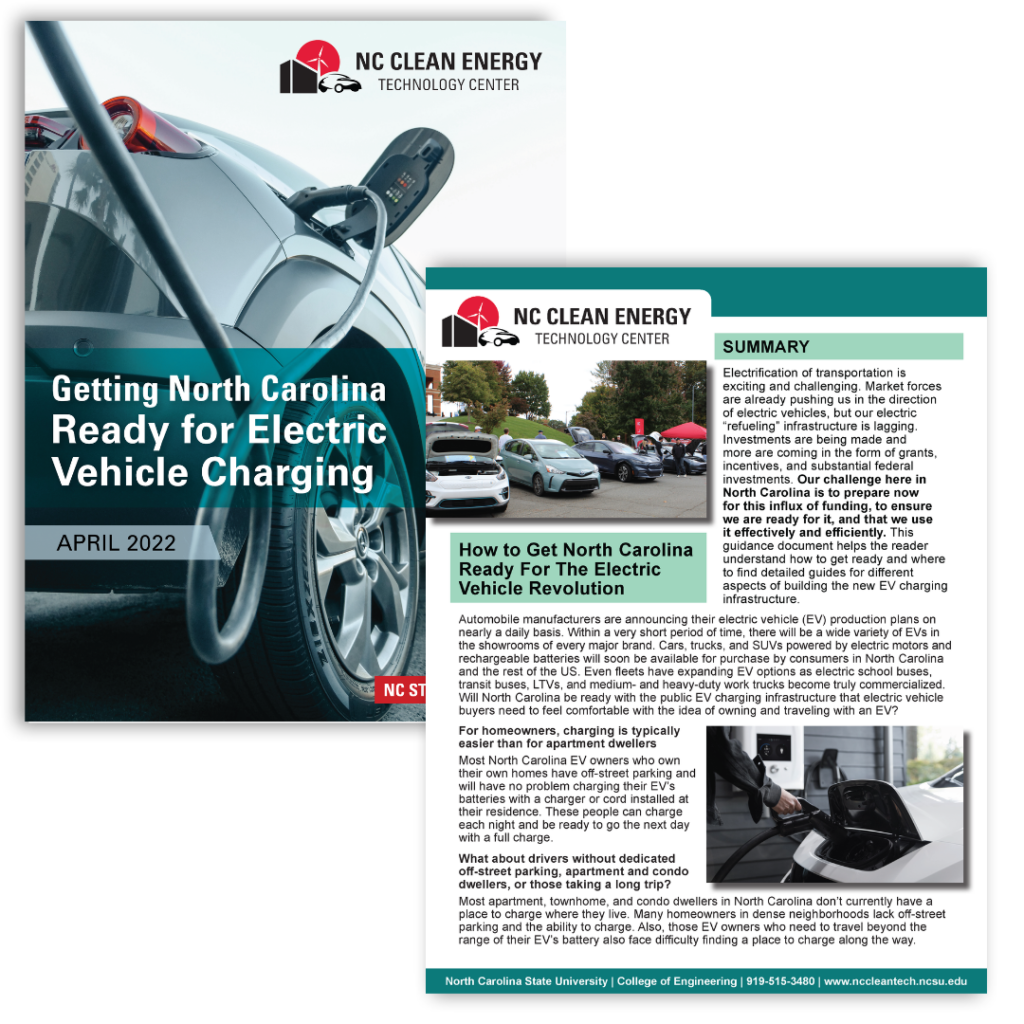 Electrification of transportation is exciting and challenging. Market forces are already pushing us in the direction of electric vehicles (EV), but our electric “refueling” infrastructure is lagging. Public and private investments are being made and more are coming in the form of grants, incentives, and substantial federal investments. In North Carolina alone, VW Settlement funds will bring ~$10 million this year. And the Bipartisan Infrastructure Law (BIL) National EV infrastructure program (NEVI) will invest more than $109 million each year over the next five years in North Carolina.
Electrification of transportation is exciting and challenging. Market forces are already pushing us in the direction of electric vehicles (EV), but our electric “refueling” infrastructure is lagging. Public and private investments are being made and more are coming in the form of grants, incentives, and substantial federal investments. In North Carolina alone, VW Settlement funds will bring ~$10 million this year. And the Bipartisan Infrastructure Law (BIL) National EV infrastructure program (NEVI) will invest more than $109 million each year over the next five years in North Carolina. 
 Alrik Lunsford, Heather Brutz, and John Bonitz, with NCCETC’S
Alrik Lunsford, Heather Brutz, and John Bonitz, with NCCETC’S 




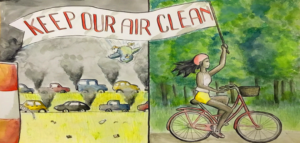
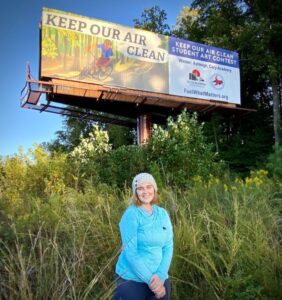
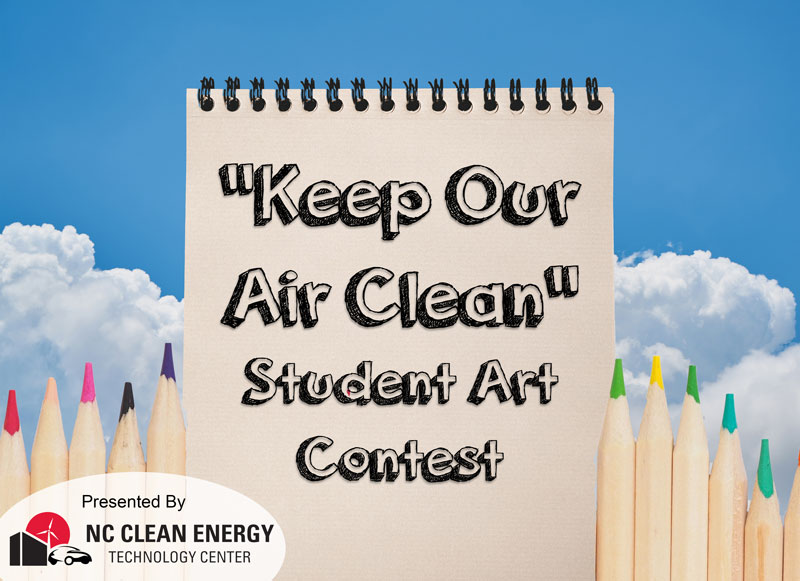
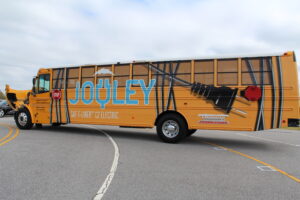 The
The 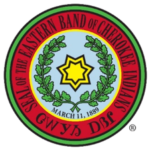
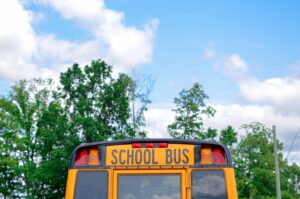 The Eastern Band of Cherokee Indians have a long tradition of stewardship and the
The Eastern Band of Cherokee Indians have a long tradition of stewardship and the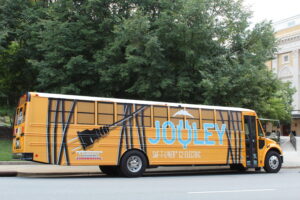 “Diesel school buses drive through every neighborhood, every week, to transport Cherokee Central School students,” Bonitz said. The four all-electric Saf-T-Liner C2 Jouley buses funded by the grant have zero tailpipe emissions, and emissions reduced through the retirement of diesel buses in the EBCI communities will especially improve local air quality on neighborhood streets, heavily trafficked roads, and on school campuses.
“Diesel school buses drive through every neighborhood, every week, to transport Cherokee Central School students,” Bonitz said. The four all-electric Saf-T-Liner C2 Jouley buses funded by the grant have zero tailpipe emissions, and emissions reduced through the retirement of diesel buses in the EBCI communities will especially improve local air quality on neighborhood streets, heavily trafficked roads, and on school campuses.